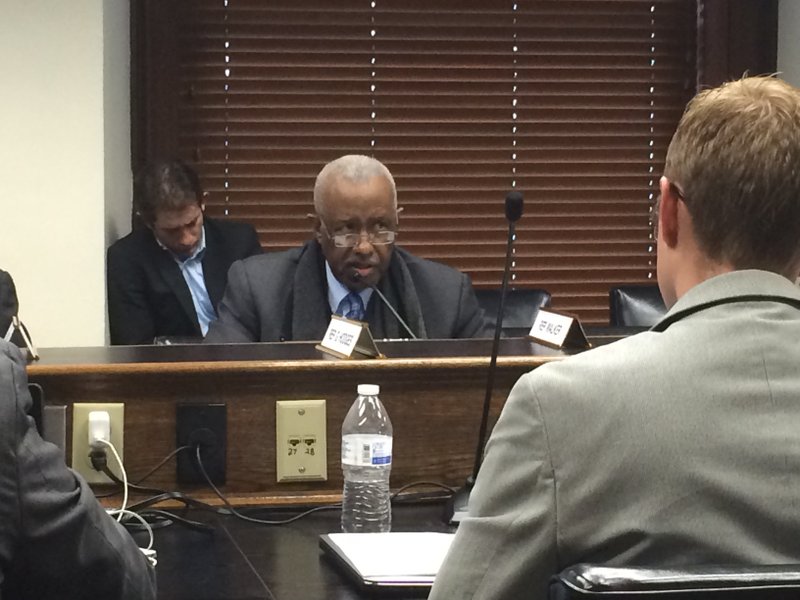A bill that would provide a waiver for rural school districts in danger of being consolidated if they meet state adequacy standards passed on Thursday in the House Committee on Education.
House Bill 1263, sponsored by Rep. Bruce Cozart, R-Hot Springs, merged together two bills to help small schools that fall below an enrollment of 350 avoid consolidation if the district is meeting academic, financial and facility standards set by the state.
Several representatives voiced concerns about if a school district that small could meet state adequacy standards and if it would be financially feasible to let these districts continue operating.
Rep. Warwick Sabin, D-Little Rock, said he would be concerned about the impact letting a district with less than 350 students continue operating would have on overall adequacy standards in the state.
Cozart said no impact studies had been done to see how this proposed legislation would affect the state standards.
"If [the districts] are academically sound and strong, I can't see that the adequacy would play a part…they would be meeting adequacy on all levels," Cozart said. "Anything that puts them into any kind of distress would kick them out of [their waiver]."
Rep. John Walker, D-Little Rock, said even though he had committed to vote for the bill, he had serious reservations because he didn't think a district with an enrollment below 350 would be academically sound.
"It's difficult for a small school to provide the same level of education as a larger school," Walker said. "I don't see how the desire to save communities will be beneficial to the state. It's not financially sound to have fewer course offers or maybe the same course offerings that will cost more on a per capita basis than a larger school."
Rep. Charlotte Douglas, R-Alma, said the legislature's focus should be on the students of the consolidated school who have to travel long distances to attend the new school.
"We talk about economics, we talk about the school, we talk about finances, but where are we talking about the kids who are affected?" Douglas asked the committee. "If you go to these schools that are consolidated and talk to the kids, it disrupts their lives. Many can't be in athletics, in clubs, because their life is spent on a bus."
Both Douglas and former state Rep. Randy Alexander, who spoke for the bill during public comment, both said no that there has been no data proving that the state has saved money and improved academics when consolidating schools.
"Until you've been in a situation where your school has been taken and your kids can't participate [in extra-curricular activities], it's hard to understand how valuable this is to a small community and to the kids in that community," Douglas said. "The virtual possibilities we have on the Internet now allow us to bring quality education into these situations. We're a different society than we were when we passed [the Public Education Reorganization Act].
Act 60 passed in 2003 detailing how school districts falling below an enrollment of 350 students would be consolidated after the state Supreme Court ruled in the Lake View School District case that the state "has an 'absolute duty' to provide an 'equal opportunity to an adequate education.'"
Rich Nagel, interim executive director of the Arkansas Education Association, said the number was reached through studies adequacy consultants conducted before the legislature passed the act, but those for the bill expressed they felt the enrollment figure was an "arbitrary number."
"When you talk about a number, if the number of 350 is the determiner of being academic or fiscally sound, you wouldn't have school districts with thousands of students put into academic or fiscal distress," Arkansas School Board Association assistant executive director Tony Prothro said.
The bill will now head to the full House for approval after being passed by the committee on a voice vote.
See Friday's Arkansas Democrat-Gazette for full coverage.

